Related Research Articles
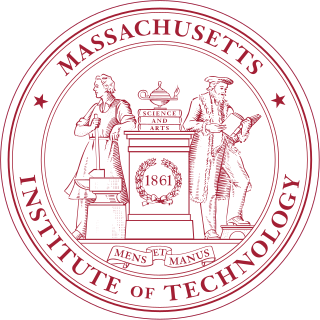
The Massachusetts Institute of Technology (MIT) is a private land-grant research university in Cambridge, Massachusetts. Established in 1861, MIT has played a significant role in the development of many areas of modern technology and science.
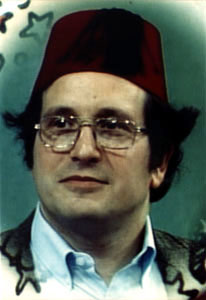
Gerald Jay Sussman is the Panasonic Professor of Electrical Engineering at the Massachusetts Institute of Technology (MIT). He has been involved in artificial intelligence (AI) research at MIT since 1964. His research has centered on understanding the problem-solving strategies used by scientists and engineers, with the goals of automating parts of the process and formalizing it to provide more effective methods of science and engineering education. Sussman has also worked in computer languages, in computer architecture, and in Very Large Scale Integration (VLSI) design.

The Advanced Research Projects Agency Network (ARPANET) was the first wide-area packet-switched network with distributed control and one of the first computer networks to implement the TCP/IP protocol suite. Both technologies became the technical foundation of the Internet. The ARPANET was established by the Advanced Research Projects Agency (ARPA) of the United States Department of Defense.
The University of California, Berkeley College of Engineering is the engineering school of the University of California, Berkeley. The college occupies fourteen buildings on the northeast side of the main campus and also operates the 150-acre (61-hectare) Richmond Field Station. Established in 1931, the college is considered to be one of the most prestigious and selective engineering schools in both the nation and the world.
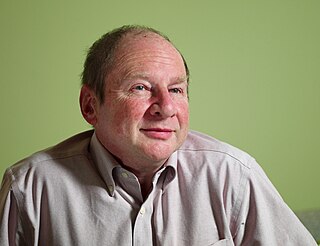
Harold Abelson is an American mathematician and computer scientist. He is a professor of computer science and engineering in the Department of Electrical Engineering and Computer Science at the Massachusetts Institute of Technology (MIT), a founding director of both Creative Commons and the Free Software Foundation, creator of the MIT App Inventor platform, and co-author of the widely-used textbook Structure and Interpretation of Computer Programs, sometimes also referred to as "the wizard book."

The MIT Media Lab is a research laboratory at the Massachusetts Institute of Technology, growing out of MIT's Architecture Machine Group in the School of Architecture. Its research does not restrict to fixed academic disciplines, but draws from technology, media, science, art, and design. As of 2014, Media lab's research groups include neurobiology, biologically inspired fabrication, socially engaging robots, emotive computing, bionics, and hyperinstruments.
Technoculture is a neologism that is not in standard dictionaries but that has some popularity in academia, popularized by editors Constance Penley and Andrew Ross in a book of essays bearing that title. It refers to the interactions between, and politics of, technology and culture.
Pierre Baldi is a distinguished professor of computer science at University of California Irvine and the director of its Institute for Genomics and Bioinformatics.
Steve Whittaker is a Professor in human-computer interaction at the University of California Santa Cruz. He is best known for his research at the intersection of computer science and social science in particular on computer mediated communication and personal information management. He is a Fellow of the Association for Computing Machinery (ACM), and winner of the CSCW 2018 "Lasting Impact" award. He also received a Lifetime Research Achievement Award from SIGCHI, is a Member of the SIGCHI Academy. He is Editor of the journal Human-Computer Interaction.

Joseph Michael Reagle Jr. is an American academic and writer focused on digital technology and culture, including Wikipedia, online comments, geek feminism, and life hacking. He is Associate Professor of Communication Studies at Northeastern University. He was an early member of the World Wide Web Consortium, based at the Massachusetts Institute of Technology, and in 1998 and 2010 he was a fellow at Harvard University's Berkman Klein Center for Internet & Society.
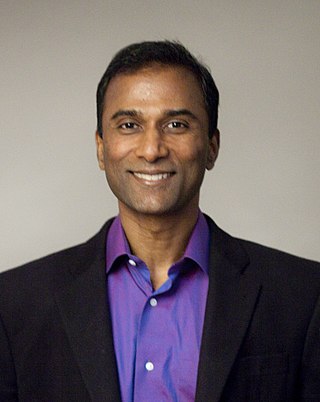
V. A. Shiva Ayyadurai is an Indian-American engineer, politician, entrepreneur, and anti-vaccine activist. He has become known for promoting conspiracy theories, pseudoscience, and unfounded medical claims. Ayyadurai holds four degrees from the Massachusetts Institute of Technology (MIT), including a PhD in biological engineering, and is a Fulbright grant recipient.
Stephanie Forrest is an American computer scientist and director of the Biodesign Center for Biocomputing, Security and Society at the Biodesign Institute at Arizona State University. She was previously Distinguished Professor of Computer Science at the University of New Mexico in Albuquerque. She is best known for her work in adaptive systems, including genetic algorithms, computational immunology, biological modeling, automated software repair, and computer security.
Deep Lab is a women's collective group composed of artists, researchers, writers, engineers, and cultural producers. These women are involved in critical assessments of contemporary digital culture and, together, work to exploit the potential for creative inquiry lying dormant in the deep web. Outside of Deep Lab, the members engage in activities that range from magazine editing, journalism, various forms of activism, and teaching. The collective's research spans a variety of topics including privacy, code, surveillance, art, social hacking, capitalism, race, anonymity, 21st century infrastructures, and practical skills for real-world applications. Deep Lab draws influence from Experiments in Art and Technology (E.A.T.), Cypherpunks, Guerrilla Girls, Free Art and Technology Lab (F.A.T.), Chaos Computer Club, and Radical Software.

Tom Cochran is a former Obama Administration appointee, having served both in the White House and Department of State between 2011 and 2016. He is a partner and the Chief Growth Officer at 720 Strategies, as well as a keynote speaker, writer, and adjunct professor at American University.
Emily Mower Provost is a professor of computer science at the University of Michigan. She directs the Computational Human-Centered Artificial Intelligence (CHAI) Laboratory.
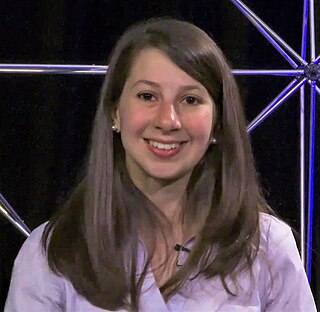
Katherine Louise Bouman is an American engineer and computer scientist working in the field of Computational Imaging. She led the development of an algorithm for imaging black holes, known as Continuous High-resolution Image Reconstruction using Patch priors (CHIRP), and was a member of the Event Horizon Telescope team that captured the first image of a black hole.
Voatz is a for-profit, private mobile Internet voting application. The stated mission of Voatz is to "make voting not only more accessible and secure, but also more transparent, auditable and accountable." The company is headquartered in Boston, Massachusetts.
Bill Thies is an American computer scientist and senior principal researcher at Microsoft Research India and the recipient of the 2016 MacArthur Fellowship.
Timeblocking or time blocking is a productivity technique for personal time management where a period of time—typically a day or week—is divided into smaller segments or blocks for specific tasks or to-dos. It integrates the function of a calendar with that of a to-do list. It is a kind of scheduling.

Chelsea Finn is an American computer scientist and assistant professor at Stanford University. Her research investigates intelligence through the interactions of robots, with the hope to create robotic systems that can learn how to learn. She is part of the Google Brain group.
References
- ↑ "Penguin Random House: Cal Newport". Penguin Random House. 2023. Retrieved July 15, 2023.
- ↑ Newport, Calvin (2009). Distributed Computation on Unreliable Radio Channels (PDF) (PhD dissertation). Massachusetts Institute of Technology (published August 7, 2009). hdl:1721.1/55120 . Retrieved November 23, 2022.
- ↑ Newport, Calvin. Curriculum Vitae. https://people.csail.mit.edu/cnewport/pubs/CalvinNewportCV.pdf
- ↑ "The Newport Foundation | Who Was John Newport?" . Retrieved October 12, 2020.
- ↑ "Calvin Newport -- Georgetown University". people.cs.georgetown.edu.
- ↑ "The dual careers of Cal Newport | MIT EECS". www.eecs.mit.edu. Retrieved August 28, 2020.
- ↑ "Cal Newport - Author of Deep Work, Study Hacks Blog". www.calnewport.com. Retrieved March 12, 2021.
- ↑ "Study Hacks - Decoding Patterns of Success - Cal Newport". calnewport.com. Retrieved December 3, 2016.
- ↑ Evans, Lisa (January 21, 2016). "Finding Your Focus Through 'Deep Work'". Entrepreneur. Retrieved May 19, 2021.
- ↑ Newport, Cal (November 19, 2016). "Quit Social Media. Your Career May Depend on It". The New York Times. ISSN 0362-4331 . Retrieved May 19, 2021.
- ↑ "Facebook Phreaks and the Fight to Reclaim Time and Attention - Study Hacks - Cal Newport". calnewport.com. February 13, 2017. Retrieved March 23, 2017.
- ↑ Newport, Cal (February 26, 2021). "E-mail Is Making Us Miserable". The New Yorker. Retrieved May 19, 2021.
- ↑ Newport, Cal (March 4, 2021). "Had it with email? Give personal office hours a try". Fast Company. Retrieved May 19, 2021.